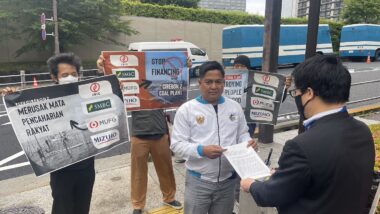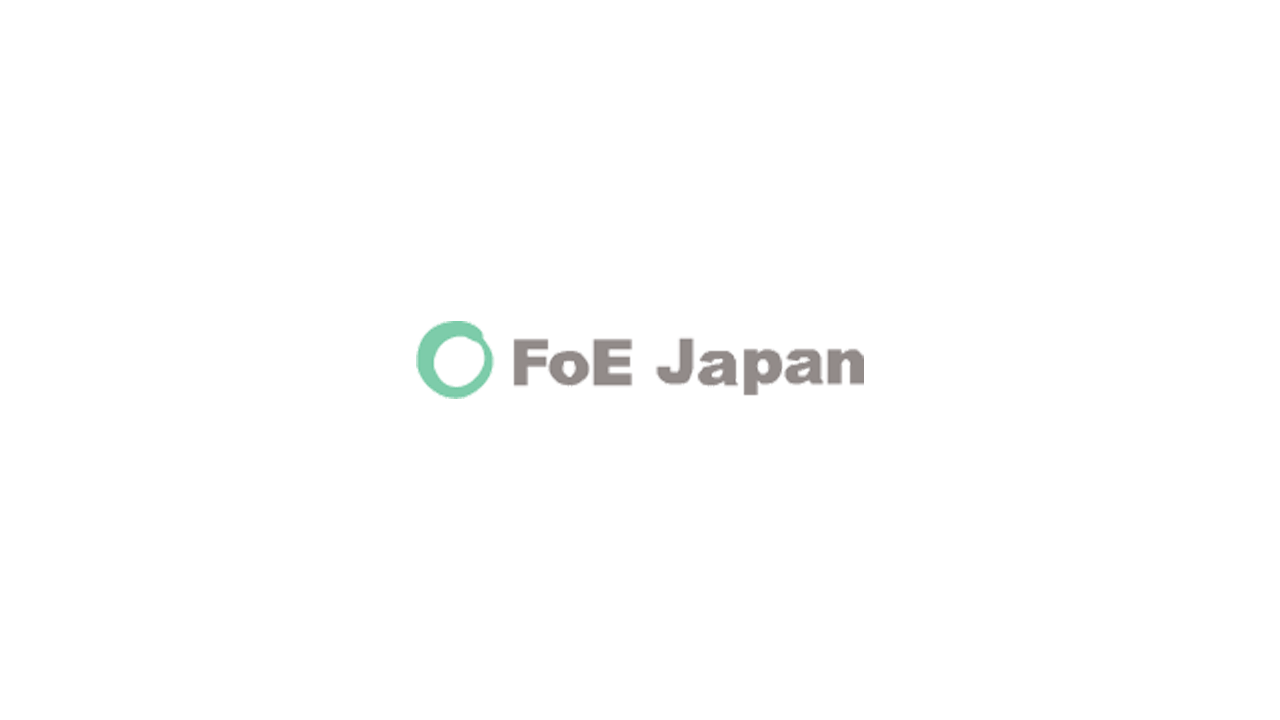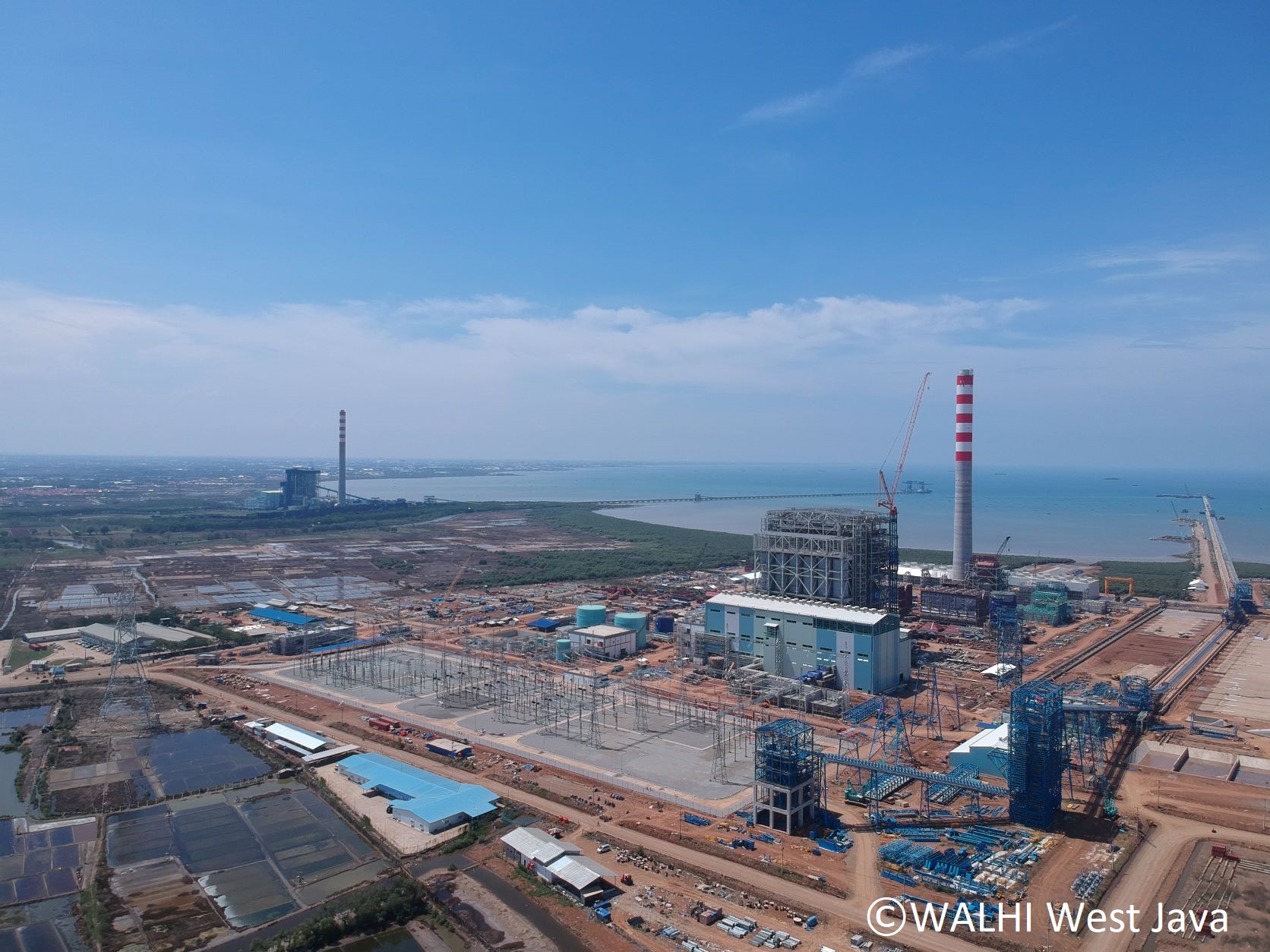PETITION: Immediately Stop Prolonging the Life of Fossil Fuels and Destroying the Environment and Livelihoods in Indonesia - Meaningful Participation of Local Communities and Civil Society in Just and Equitable Energy Transition
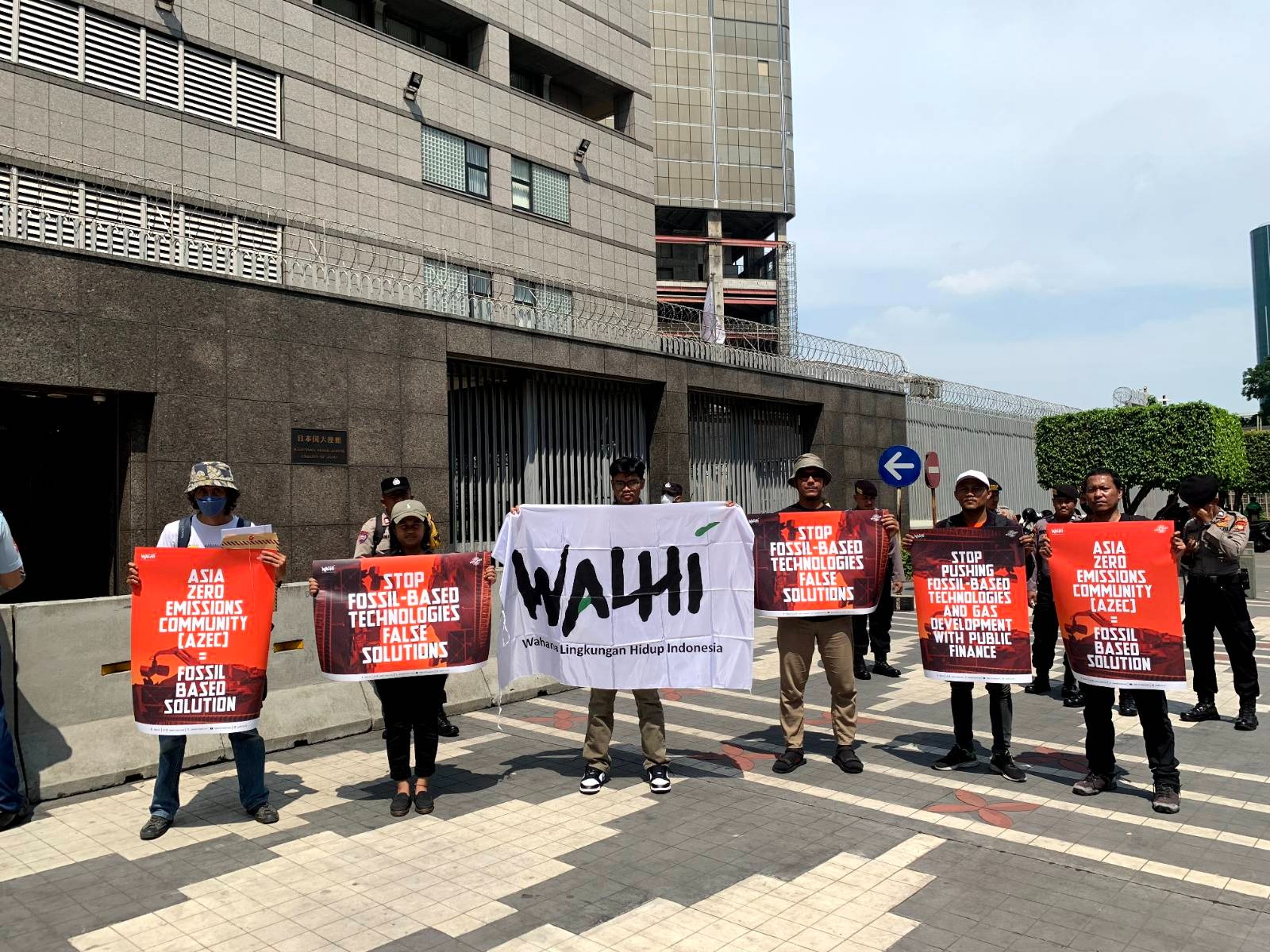
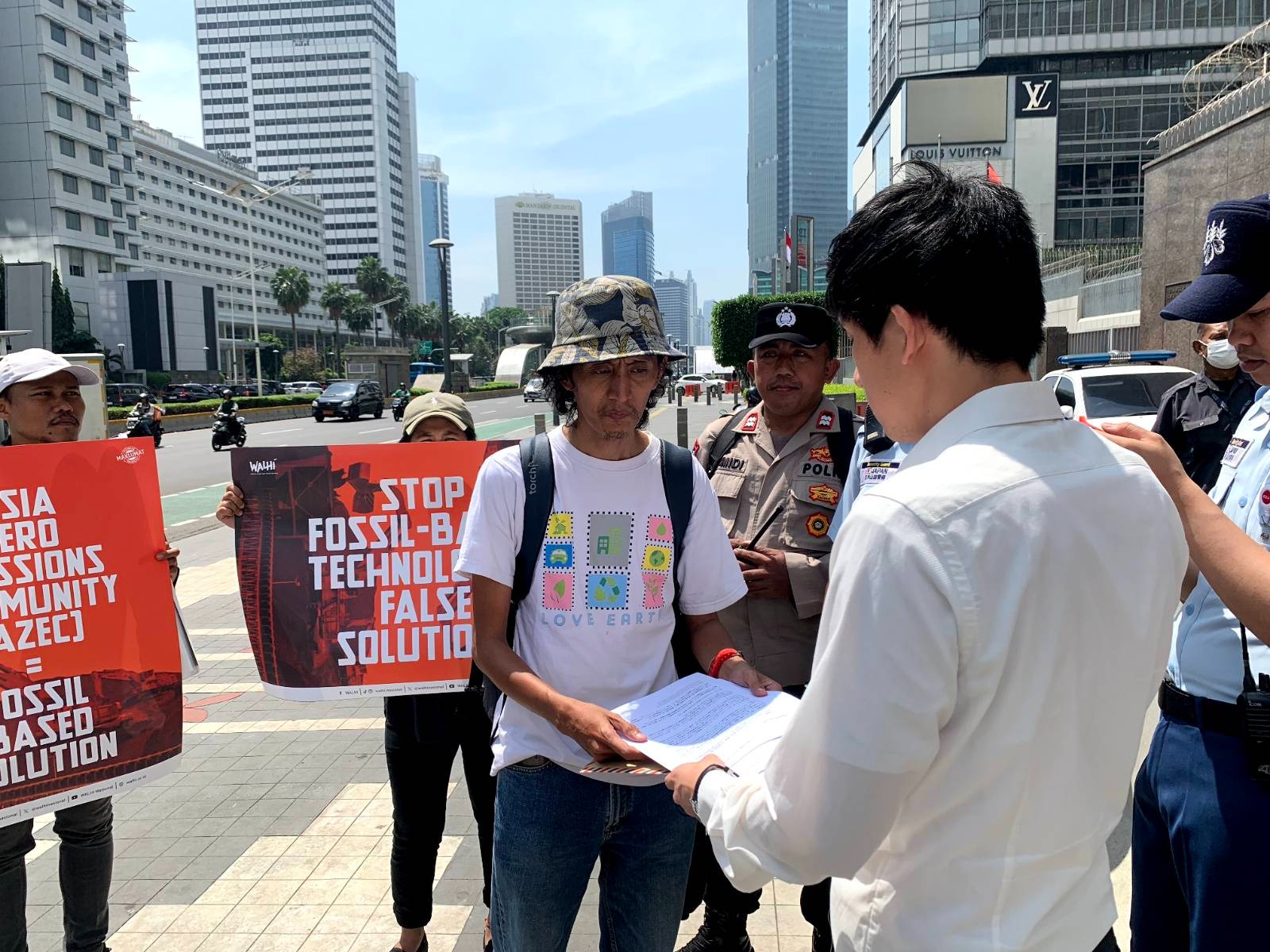
December 15, 2023
Mr. KISHIDA Fumio, Prime Minister
PETITION: Immediately Stop Prolonging the Life of Fossil Fuels and Destroying the Environment and Livelihoods in Indonesia – Meaningful Participation of Local Communities and Civil Society in Just and Equitable Energy Transition
We, the undersigned, are an Indonesian civil society organization working on climate, environmental, human rights and energy issues. We are greatly concerned by Prime Minister Kishida’s speech which stated, “Through the Asia Zero Emissions Community (AZEC) initiative, Japan will contribute in a concrete way with projects. From COP to AZEC’. The first AZEC summit will be held in Tokyo in the middle of this month,” calling themselves contributing to the decarbonization of Asia at the 28th session of the Conference of the Parties (COP28) to the United Nations Framework Convention on Climate Change (UNFCCC) earlier this month.
We would like to raise the utmost warning that the AZEC initiative that Japan is leading under its GX (Green Transformation) strategy is nothing more than a greenwash labeled as decarbonization. It is more enriching for companies that have already made huge profits, while spreading " false solutions to climate change" in Indonesia, and more infringing on the basic human rights of vulnerable local communities in the society. AZEC, proceeding without any meaningful participation of Indonesia’s local communities and civil society, will hinder a fast, just, and equitable energy transition.
Similar problems can be pointed out with the “Just Energy Transition Partnership" (JETP) in Indonesia led by the United States and Japan, and the “Energy Transition Mechanism" (ETM) led by the Asian Development Bank (ADB), in which the Japanese government is the largest funder. We again express our grave concern over Japan’s failure to fulfill its historical responsibility to address the imminent climate crisis.
We call on the Japanese government to take the following concrete steps.
1. To scrap the AZEC initiative; and cooperate and support for a rapid, just and equitable decarbonization/energy transition in a way that ensures meaningful participation of local communities and civil society in Indonesia.
(1) To stop pushing fossil-based technologies that are false solutions to climate change.
During the AZEC Ministerial Meeting held in March this year, the importance of technologies that prolong the use of fossil fuels was highlighted in the Joint Statement and Chair’s summary. These are hydrogen, ammonia, bioenergy, carbon capture, utilization, and storage (CCUS), gas, and LNG. However, these technologies are not expected to contribute to the reduction of greenhouse gas emissions necessary to achieve the 1.5°C goal of the Paris Agreement, and thus do not help to combat climate change. Some of these technologies are still unestablished, unproven, and extremely high-cost.
(2) To stop the reproduction of centralized power systems where the profits of large corporations are prioritized and the adverse impacts on local communities cannot be ignored; and support decentralized clean energy based on the needs and participation of local communities.
On the occasion of the AZEC Ministerial Meeting in March 2023, a number of Memorandums of Understanding (MoUs) were signed between Japanese public institutions and large private companies and Indonesian state-owned companies and large private companies. Specific joint projects, ranging from technologies to prolong the use of fossil fuels, as mentioned above, to geothermal energy, are being promoted in the name of decarbonization and energy transition. However, these large-scale projects are nothing more than the reproduction of conventional centralized energy systems where adverse impacts on the water, air, health, and livelihoods of local communities cannot be overlooked. In addition, the projects should not be proceeding ahead without proper reflection of the views and concerns of the local communities that will be affected by the projects. In particular, the Japanese government should not forget the lessons from the ODA (Official Development Assistance) lawsuit filed by the local residents of the Koto Panjang hydroelectric dam in Sumatra, which was funded by the Japan International Cooperation Agency (JICA).
(3) To protect the human rights of local communities to be affected/affected by the development of critical minerals, before developing a supply chain of critical minerals.
In the AZEC Joint Statement and Chair’s summary In March 2023, the importance of developing a supply chain of critical minerals was also recognized. Although it is not clear exactly what kind of agreement is envisioned under the AZEC initiative, the contents of the agreement are of great concerns to us because Indonesia has the world’s largest reserves of nickel, which is in growing demand especially as a battery material. The contradictions in the areas, where nickel and other critical minerals are being developed as part of efforts toward a decarbonized society, have already been pointed out: the destruction of rainforests, which are carbon sinks, and the continued or increased emissions of greenhouse gases from existing and new captive coal- and gas-fired power plants.
In addition, while development of critical minerals is being promoted as essential for decarbonization, it is important to fully recognize the human rights of indigenous peoples and local communities living in the area, especially their right to refuse the project or their right to say “No”. There have been reports of serious human rights violations, including the deployment of the Indonesian military and heavily armed police officers against local communities in Sulawesi who are protesting the expansion of the Tanamalia block of Sorowako Nickel Mining Project, which is being implemented by a Japan-invested company.
2. To stop pushing fossil-based technologies and gas development with public finance by JICA, JBIC, and NEXI.
JICA commissioned Japanese companies (TEPCO Power Grid, Inc. (TEPCO PG), Tokyo Electric Power Company Holdings, Inc. (TEPCO HD), JERA Co., Inc. (JERA), Tokyo Electric Power Services Co., Ltd (TEPSCO)) to complete the “Data Collection Survey on Power Sector in Indonesia for Decarbonization" in March 2022. The roadmap for achieving carbon neutrality by 2060, as drawn in the survey, proposes prioritizing the co-firing of ammonia and biomass at existing coal-fired power plants and positioning ammonia, hydrogen, and LNG (with CCS) as the main fuels over the long term. We have been conveying our criticism to the Japanese government for its apparent imposition of these fossil-based technologies.
We have recently learned that JICA is planning to conduct a two-year “Master Plan for Energy Transition Management Project in Indonesia”, which will last until October 2025. Looking at the details of the agreement with the Indonesian state-owned power company (PLN), words such as CC(U)S, hydrogen, ammonia, biomass, and LNG are again lined up. The Japanese government must urgently stop imposing " false solutions to climate change" that prolong the use of fossil fuels in the name of such “support".
We are also appalled that Japan is still trying to develop a new gas field in Indonesia. The Abadi LNG (Masela field) and CCS development plan is being promoted by INPEX CORPORATION offshore Maluku Province. A recent report by the International Energy Agency (IEA) has reiterated that “no need to explore for new oil and gas fields from now on” to be compatible with the Paris Agreement. Although INPEX aims for FID (Final Investment Decision) in the late 2020s and production in the early 2030s, this new gas development plan, which clearly goes against worldwide climate change countermeasures, must be stopped right away. Any support (including equity acquisition and surveys) that leads to the promotion of this gas development project, which is estimated to be worth 3 trillion yen, should not be provided with public finance through the Japan Bank for International Cooperation (JBIC), Nippon Export and Investment Insurance (NEXI), or any other public institution.
It must not be forgotten that gas development has not only exacerbated the climate crisis, but has also had significant environmental, social, and human rights impacts on local communities. And CCS, whose track record has been questioned by the IEA, saying that “the history of CCUS has largely been one of unmet expectations”, should not be implemented because it will result in prolonging the impacts on local communities. For example, in the Tangguh LNG Project in West Papua supported by JBIC and NEXI (Invested by Mitsubishi Corporation, JX Nippon Oil & Gas Exploration, Sojitz Corporation, Sumitomo Corporation, INPEX, Mitsui & Co. And Kansai Electric Power Company has purchased the LNG), problems have occurred from the very early stages of the project, such as the Environmental Impact Assessment (EIA) being conducted without meaningful participation and consultation of the local residents. As a result, areas that are ecologically important for the residents (coastal areas and mangrove forests) have been damaged and their activities have been restricted (fishing areas around the gas platform). The project has also forcibly evicted three tribes (Sowai, Wayuri, and Simuna) from the lands of the Sumuri indigenous community, who are the customary landowners in the area, and the indigenous people have lost access to their traditional farming and hunting areas.
3. To call on relevant parties to ensure transparency, information disclosure, and participation of local communities and civil society in JETP and ETM.
Both the JETP and the ETM remain in a situation where it is necessary to question once again for whom the energy transition is. First, for the Indonesia JETP, the draft Comprehensive Investment and Policy Plan (CIPP) was made public on November 1, 2023, but the draft was initially released only in English, and it was not until November 10 that the release in Bahasa Indonesia was confirmed. The public comment period was set until November 14, and the finalized CIPP was officially released on November 21, before COP28. 14 days is not an appropriate comment period for a policy document that is over 300 pages long and covers a wide range of topics. The fact that the CIPP draft has only been available in Bahasa Indonesia for three working days seriously undermines the opportunity for local communities and civil society in Indonesia to participate.
Regarding the Cirebon Coal-Fired Power Plant Unit 1 (Cirebon 1) in West Java, which was announced on November 14, 2022 as the first project to utilize ETM, ADB, the Indonesia Investment Authority (INA), PLN, and Cirebon Electric Power (CEP; invested by Marubeni Corporation) signed the MOU on the same day, no details of which has been disclosed yet. Subsequently, ADB has informed WALHI West Java that ADB plans to conduct an environmental audit based on its safeguard policy in the first to third quarter of 2023, and that it also plans to hold consultations with landowners, fisherfolks, and other residents, who have been affected by Cirebon 1, and environmental groups. However, no such consultations have been held to date, and the contents of the ADB audit remain undisclosed. Furthermore, it is reported that a Framework Agreement was signed between the above-mentioned four parties on December 3, 2023 at a side event at COP28, but the details of the agreement remain unclear, except that the project period is to be shortened from July 2042 to December 2035. The parties said that they would confirm the framework in the future for the use of the ETM in the first half of 2024, but local communities and civil society continue to be left out of the loop.
4. To withdraw from energy transition cooperation which has no legal basis and is contrary to the Indonesian constitution.
Indonesia is a country based on law (rechtsstaat) not based on power (machtstaat). Indonesia as a country of law means that the law has binding force which must be obeyed by all citizens and the government. Law is the basis for actions and decisions taken by individuals, groups, institutions and governments. No power or authority is above the law.
Indonesia’s energy transition program, whether through the ETM program or the JETP, does not have a regulatory basis. To this day, the program which is planned to disburse billions of dollars in funds to Indonesia does not have a definite legal umbrella. This haphazard practice can cause problems in the future when there is no basis for its implementation.
As a rule of law, the Indonesian government’s policies that will regulate public interests should have a clear legal basis. Public policies must have a legal basis in accordance with the general principles of good governance, especially regarding legal certainty. The principle of legal certainty is a principle in a rule of law that prioritizes the basic provisions of laws and regulations, propriety, consistency and justice in every government administration policy. The principle of legality is considered the most important basis of the rule of law (al seen van belangrijkste fundamenten van de rechtsstaat) and means that the government can only take action based on the authority granted and limited by law, (het bestuur kan alleen op basis van door de wet toegekende en afgebakende bevoegdheden handelen).
Supposedly, the availability of regulations as a legal umbrella regarding the energy transition can provide legal certainty to apply the principles of justice in planning and implementing the energy transition in Indonesia. This implementation accommodates the country’s needs to ensure energy access for vulnerable and underprivileged communities. The application of the principle of benefit in planning and implementation can be done by ensuring that this collaboration truly provides the greatest benefit to the wider community, not just certain sections of society.
The legal basis is very important to guarantee the implementation of principles related to the fulfillment of human rights, including the right to a healthy environment, an increase in equitable living standards, guarantees of legal protection and certainty, as well as access to employment, especially regarding workers who are relevant to the business. Environmental protection principles are also an important part, sustainable management of natural resources, fair efficiency and energy independence require an understanding that achieving a just energy transition requires the establishment and implementation of programs that comply with non-economic principles: namely, protection of the environment, sustainable natural resources utilization, fair efficiency and energy independence.
The absence of a legal basis results in no certainty regarding the energy transition mechanism that will be chosen. When this program will involve State-Owned Enterprises as implementers of this program, the arrangements will become unclear. PLN, as one of the state-owned enterprises that focuses on electricity, has a decarbonation roadmap through the Zero Carbon 2060 scenario.
Legal certainty regarding the position of the Secretariat and JETP’s work agenda is a big question in the principles of good governance. This question will refer to the extent to which the JETP Secretariat can be held accountable in terms of its contribution and influence on the regulation of the lives of many people. The lack of clarity of position in the legal basis is problematic in terms of governance and accountability. Especially if in the future there are fundamental problems in planning and implementation that go wrong, violate laws and regulations, and have serious impacts.
The absence of a legal basis as a basis for the activities of both ETM and JETP also has implications for the difficulty of attracting legal accountability when problems such as corruption arise which have serious impacts.
The involvement of the Japanese government in this agenda in Indonesia is not only contrary to Indonesian law and the constitution. Japan’s involvement will mean that the Japanese government holds responsibility when fundamental problems arise, such as corruption. Likewise, the serious impact of the various risks will be posed on the Japanese government.
5. To fulfill appropriately its historical responsibility for climate change and its adequate responsibility for pushing unnecessary coal-fired power plants in Indonesia.
The historical responsibility of developed countries for climate change due to cumulative greenhouse gas emissions is recognized by the United Nations Framework Convention on Climate Change (UNFCCC). Funding support for decarbonization measures in Indonesia is an obligation of developed countries. However, according to the Indonesia JETP’s CIPP, nearly three-quarters of the public funds currently committed are concessional and non-concessional loans, and there are concerns that Indonesia’s debt situation will get worse. Japan also “commits an estimate of US$1.7 billion funding, consisting of JICA concessional loan and, JBIC non-concessional loan and investment, as well as small amount of grants," but this approach of increasing Indonesia’s debt is not an appropriate way of taking historical responsibility.
Despite international criticism, Japan has continued to pour public finance from JBIC and NEXI into new coal-fired power plants in Indonesia even after the Paris Agreement was adopted in 2015, locking us into significant greenhouse gas emissions. These are the Batang coal-fired power plant project, Units 5 and 6 of the Tanjung Jati B coal-fired power plant, and Unit 2 of the Cirebon coal-fired power plant. With a total installed capacity of 5,000 megawatts, these coal-fired power plants are useless in the Java-Bali grid system, which is forecasted to have a 40-60% reserve margins (2021-2030).
However, under the long-term power purchase agreement (PPA) between PLN and the independent power producers (IPPs) for any of the projects, it is we, the electricity consumers, who will ultimately be made to pay the costs. To fix this injustice of worsening climate change and worsening debt conditions due to unnecessary power, the Japanese public and private sectors should take adequate responsibility for the early retirement of these coal-fired power plants. Such responsibility must include taking action to restore sound living conditions to local communities who have been deprived of farmland, healthy fishing grounds, and clean water and air.
Cc:
Ms. KAMIKAWA Yoko, Minister for Foreign Affairs
Mr. SUZUKI Shunichi, Minister of Finance
Mr. SAITO Ken, Minister of Economy, Trade and Industry
Mr. ITO Shintaro, Minister of the Environment
State Ministers for Foreign Affairs
State Ministers of Finance
State Ministers of Economy, Trade and Industry
State Ministers of the Environment
Mr. TANAKA Akihiko, President, Japan International Cooperation Agency (JICA)
Mr. HAYASHI Nobumitsu, Governor, Japan Bank for International Cooperation (JBIC)
Mr. KURODA Atsuo, Chairman and CEO, Nippon Export and Investment Insurance (NEXI)
Ambassador of Japan to Indonesia
Signatories:
Eksekutif Nasional WALHI (Wahana Lingkungan Hidup Indonesia)
Eksekutif Daerah WALHI Aceh
Eksekutif Daerah WALHI Sumatera Utara
Eksekutif Daerah WALHI Sumatera Barat
Eksekutif Daerah WALHI Riau
Eksekutif Daerah WALHI Jambi
Eksekutif Daerah WALHI Sumatera Selatan
Eksekutif Daerah WALHI Bangka Belitung
Eksekutif Daerah WALHI Bengkulu
Eksekutif Daerah WALHI Lampung
Eksekutif Daerah WALHI Kalimantan Barat
Eksekutif Daerah WALHI Kalimantan Tengah
Eksekutif Daerah WALHI Kalimantan Selatan
Eksekutif Daerah WALHI Kalimantan Timur
Eksekutif Daerah WALHI DKI Jakarta
Eksekutif Daerah WALHI Jawa Barat
Eksekutif Daerah WALHI Jawa Tengah
Eksekutif Daerah WALHI Yogyakarta
Eksekutif Daerah WALHI Jawa Timur
Eksekutif Daerah WALHI Sulawesi Utara
Eksekutif Daerah WALHI Sulawesi Tengah
Eksekutif Daerah WALHI Sulawesi Tenggara
Eksekutif Daerah WALHI Sulawesi Barat
Eksekutif Daerah WALHI Sulawesi Selatan
Eksekutif Daerah WALHI Papua
Eksekutif Daerah WALHI Maluku Utara
Eksekutif Daerah WALHI Nusa Tenggara Barat
Eksekutif Daerah WALHI Nusa Tenggara Timur
Eksekutif Daerah WALHI Bali
Trend Asia
350 Indonesia
AEER (Aksi Ekologi & Empansipasi Rakyat)
Contact:
Wahana Lingkungan Hidup Indonesia (WALHI / Friends of the Earth Indonesia)
Address Jln. Tegal Parang Utara No 14, Jakarta Selatan 12790. INDONESIA
email: informasi@walhi.or.id
Tel: +62-21-79193363

